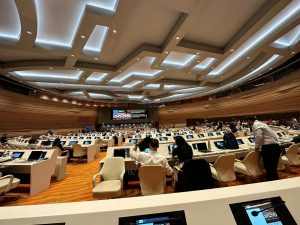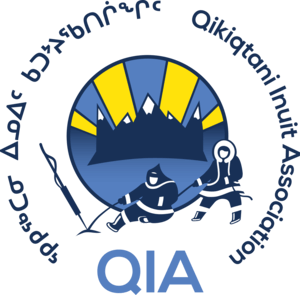 QIA Presentation to the United Nations Expert Mechanism on the Rights of Indigenous Peoples
QIA Presentation to the United Nations Expert Mechanism on the Rights of Indigenous Peoples
Today, QIA presented to the Expert Mechanism on the Rights of Indigenous Peoples at the United Nations in Geneva, Switzerland. The intent of the presentation was to raise international awareness on the need for Canada to fulfil commitments to Inuit under the United Nations Declaration of the Rights of Indigenous Peoples. We have stated that a path forward must achieve economic reconciliation in waters within and adjacent to Nunavut. QIA leadership has made it clear that for any partnership with Canada and philanthropic donors that advances conservation, Inuit must gain access to 90% of our adjacent fisheries resources in the offshore; and a set of fisheries regulations within the Nunavut Settlement Area. Both of which have not been fulfilled since the creation of the territory in 1993.
Qujannamiik Iksivautaq, thank you chair and expert panel members. Key to this panel is the facilitation and promotion of Inuit participation in hunting, fishing, and gathering
practices that sustain and strengthen Inuit culture, food security, improve nutrition, and support local economies. Qikiqtani Inuit in partnership with Canada and Enduring Earth are collaborating to achieve a Project Finance for Permanence Agreement that would result in formal protection of nearly 10% of Canadian waters. The Qikiqtani Inuit of the Canadian Arctic present implementing the principle of adjacency in relation to modern treaty implementation and the rights and commitments Canada has to Inuit under UNDRIP. Canada has defined Modern Treaties as a distinct expression of reconciliation.
As a part of economic reconciliation Canada needs to address historical injustices experienced by Inuit associated with federal polices and decision-making including inadequate Inuit access to adjacent fisheries and management of natural resources. To date, despite symbolic statements made by the Government of Canada, Nunavut still lacks a set of regulations to manage the harvesting of fish and marine mammals within Inuit homelands. For Inuit, a critical part of economic self-sufficiency is a fair allocation fish quota in Nunavut adjacent waters.
If it is to be successful, economic reconciliation will realign Inuit economies and puts the responsibility of sustainability and stewardship directly in the hands of our people for millennia. Qikiqtani Inuit present a path forward to achieve reconciliation that must see the elimination of socioeconomic disparities experienced by Inuit and achieve equity with other Canadians, specifically related to fisheries that is tied directly to addressing the historic marginalization of Inuit from fisheries and fisheries management which can be achieved through innovate approaches such as the Qikiqtani Project Finance for Permanence.

